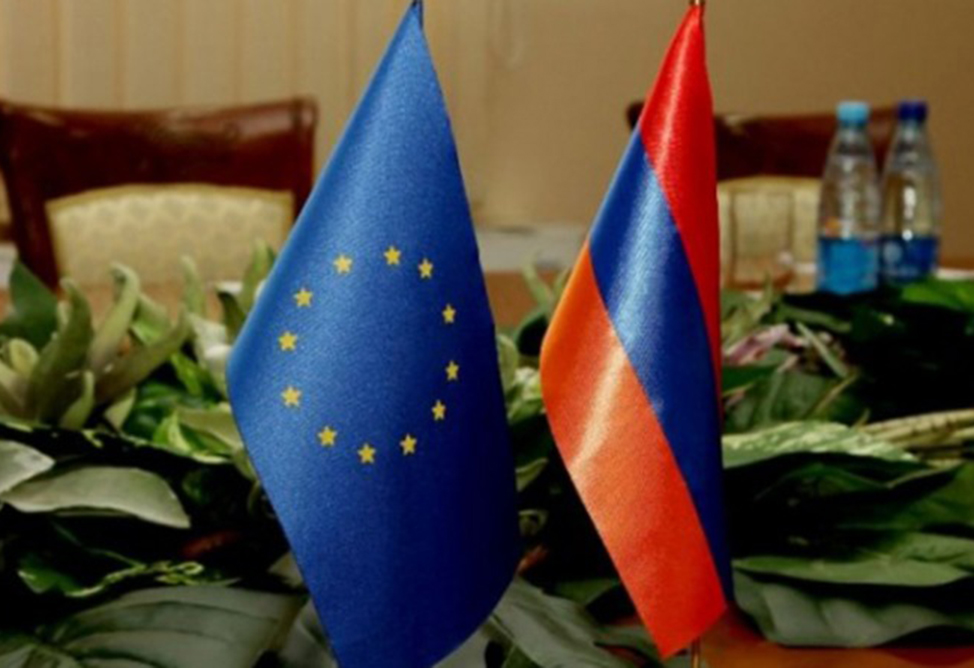Turkish and Azerbaijani investments will bring to muslimization of Armenian Javakhk
13.03.2011,
05:33
Investments of Turkish and Azerbaijani companies in the Armenian populated Georgian region Samtskhe-Javakhetia will bring to muslimization of the region, historian-expert Vane Sargsyan considers.
YEREVAN, March 12. /ARKA/. Investments of Turkish and Azerbaijani companies in the Armenian populated Georgian region Samtskhe-Javakhetia will bring to muslimization of the region, historian-expert Vane Sargsyan considers.
The region Samtskhe-Javakhetia (historical Armenian name - Javakhk) is located on the border of Georgia, Armenia and Turkey where the majority of population are Armenians - 91%.
“Today hydro-power stations are being built on the main two rivers of Javakhk – Parvana and Kur. The main shareholders are Turkish companies and the road construction is implemented by Azerbaijani company “Azertash” which won the tender of the program of American corporation “Millenium Challenges”. All this create Muslim oases in Javakhk”, said Sargsyan in the pres-conference on Saturday.
If at the beginning of the century in south Georgia, in the region Kvemo-Kartli Muslims made only 20-25 thousand people, now they are 350-400 thousand. “It is a real threat for north borders of Armenia. If it continues this way, Armenia will have to locate troops in the Armenian-Georgian border”, said Sargsyan.
In the region Tsalka the majority of population are Armenians. In Soviet times there were four Azerbaijani villages and now – seven.
He mentioned the policy of relocation of Turks-Meskhetins. “Now in the city Akhaltskha there live only 30 families of Turks-Meskhetins. Due to the liabilities of Georgia towards European Council, their return (about 90 thousand people) is actual today. It will be a catastrophe for Javakhk”, he said.
For the solution of this problem it is necessary to promote investments of Armenian companies in Javakhk, for which the authorities should develop state strategy regarding Javakhk.
“Otherwise, Armenians will leave the region which will be a very serious problem for Armenia as strategic importance of Javakhk and local Armenian community is highly appreciated”, said Sargsyan.
According to census of population 2002, the number of Armenians in Javakhetia is about 90.4 thousand people. --0--
The region Samtskhe-Javakhetia (historical Armenian name - Javakhk) is located on the border of Georgia, Armenia and Turkey where the majority of population are Armenians - 91%.
“Today hydro-power stations are being built on the main two rivers of Javakhk – Parvana and Kur. The main shareholders are Turkish companies and the road construction is implemented by Azerbaijani company “Azertash” which won the tender of the program of American corporation “Millenium Challenges”. All this create Muslim oases in Javakhk”, said Sargsyan in the pres-conference on Saturday.
If at the beginning of the century in south Georgia, in the region Kvemo-Kartli Muslims made only 20-25 thousand people, now they are 350-400 thousand. “It is a real threat for north borders of Armenia. If it continues this way, Armenia will have to locate troops in the Armenian-Georgian border”, said Sargsyan.
In the region Tsalka the majority of population are Armenians. In Soviet times there were four Azerbaijani villages and now – seven.
He mentioned the policy of relocation of Turks-Meskhetins. “Now in the city Akhaltskha there live only 30 families of Turks-Meskhetins. Due to the liabilities of Georgia towards European Council, their return (about 90 thousand people) is actual today. It will be a catastrophe for Javakhk”, he said.
For the solution of this problem it is necessary to promote investments of Armenian companies in Javakhk, for which the authorities should develop state strategy regarding Javakhk.
“Otherwise, Armenians will leave the region which will be a very serious problem for Armenia as strategic importance of Javakhk and local Armenian community is highly appreciated”, said Sargsyan.
According to census of population 2002, the number of Armenians in Javakhetia is about 90.4 thousand people. --0--



